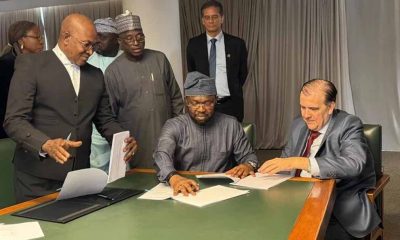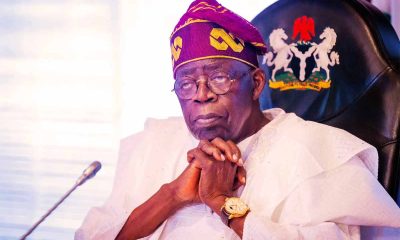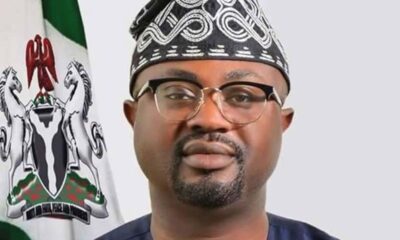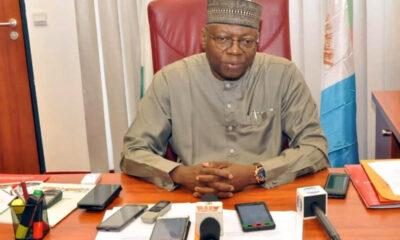Business
Doubts as Nigeria negotiates debt relief with World Bank, IMF

• Owoh: It’s fruitless, costly effort to further defraud citizens • Economy risks junk status, experts warn
• Country faces hard, painful choices, says Oxford economist, Dercon
• El-Rufai admits NNPC hasn’t brought N20,000 to nation’s treasury in 2022, says it’s a failure
During a media interview on the sidelines of the ongoing World Bank and International Monetary Fund (IMF) Annual Meeting on Wednesday, Ahmed said FG had commenced discussions with the Bretton Wood institutions on debt restructuring for the country.
“It is a fact that Nigeria’s debt has increased over the last three to four years and this increase in debt was occasioned by the different kinds of exogenous shocks that the country faced, which are not unique to Nigeria. The situation we have by the 2023 projection is that we will need about 65 per cent of our revenues to service debt.
“Unfortunately, the cost of debt service is rising, because of the growing interest rate globally, which is resulting also in higher debt service costs. But our projection from the debt sustainability analysis is that Nigeria is able to cope with its debt service in 2022 as well as in 2023.
“We have been engaging financial institutions to look at the opportunity to restructure our debt to further stretch the debt service period to give us more fiscal relief. Those are some of the things we want to achieve in this meeting,” Ahmed said.
READ ALSO:
- Ogun man kills wife, burns corpse with iron
- How I was framed for armed robbery, dumped in prison — 32-yr-old painter
- 2023: It’s reward time for Tinubu, say Kwara governor, senator
The official disclosure came same day Managing Director of Augusto & Co, Olabode Augusto, raised the alarm that Nigeria was on “its road to Zimbabwe,” stressing that no other country is leveraging 10x spending as the country is currently doing. Leverage ratio is the level of debt in proportion to income or equity.
According to Augusto, crisis-ridden Sri Lanka and neighbouring Ghana, which is seeking debt restructuring, have a leverage ratio of 7x and 3x respectively.
While Ahmed is in Washington negotiating with development partners, one of the world’s most renowned economist and Director of the Centre for the Study of African Economies, University of Oxford, Prof. Stefan Dercon, is in Nigeria to speak on the state of the economy and the options before the managers.
On Wednesday, Dercon dismissed Nigeria as a country trapped in an ‘elite bargain’ crisis. He said hard choices would be able to rescue the economy but warned that even choices are limited in these hard times. He said any decision taken to achieve macroeconomic stability would be painful. The best time to act was about seven years ago, he said, advising the country to continue to manage the situation but show commitment to making hard decisions when things are more stable.
Reacting to the Minister’s disclosure, a professor of economics and debt management expert, Godwin Owoh, described the plan as another fruitless and costly ploy that would further drain public purse. He challenged government to provide more information about the consultants it is working with to help Nigeria evaluate the process.
“Who are the consultants they are working with? What are their terms of reference?” Owoh asked, saying there is little room for negotiating restructuring of the country’s debt. He said some of the debts are still shrouded in secrecy, adding that debt restructuring negotiation can take up to a year, which the current administration does not have the luxury of time to see the process through.
Chief Executive Officer of Dairy Hills Limited, Kelvin Emmanuel, warned that the move would downgrade the country’s economy to ‘junk status’, which would mean that the country will no longer be creditworthy in the international market.
Emmanuel also argued that converting the ways and means (W&M) facility into local debt stock is not only a violation of the Central Bank of Nigeria (CBN) Act, but would also increase the total debt stock by over 50 per cent and worsen the cost of servicing; as well as trigger a downgrade to a lower rating from the current not-too-good B2.
READ ALSO:
- Buhari Approves 12,000 Metric Tons Of Grains For Flood Victims
- Why we quashed terrorism charge against Nnamdi Kanu — Appeal Court
- Governor Sanwo-olu signs MoU with Del-York to build media, film city in Lagos
“Seeking to raise $20 billion is proof that the government does not understand the impending doom the economy faces in the current trajectory,” he said.
President Muhammadu Buhari had at the United Nations General Assembly in September sought the assistance of world leaders in considering granting debt relief or outright cancellation to developing countries.
But the Deputy Managing Director of IMF, Kenji Okamura, has urged governments to be prudent and spend public resources for the greater need of the people.
He said: “We live in turbulent times, which highlights the importance of social contracts – an understanding of mutual expectations that bind citizens and their governments. To strengthen public trust and support social cohesion, governments need to invest in basic public services and deliver more inclusive policies. Fair and more transparent use of public resources is key.”
At a press conference, yesterday, the Managing Director of the Fund, Kristalina Georgieva, appealed to policymakers to act with a sense of urgency to bring down inflation and support vulnerable emerging markets.
The statement came shortly after the reading of the United States’ September Consumer Price Index (CPI), which showed a slight decline, but higher-than-expected inflation. The inflation rate slowed to 8.2 per cent from 8.3 per cent in August.
Georgieva said policymakers need to act now and act together in resolving inflation and safeguarding financial stability. On this note, she said, macro-prudential policies need to be vigilant and proactively address pockets of vulnerability.
“In this environment, we also must support vulnerable emerging markets and developing countries. It is tough for everybody, but it is even tougher for countries that are now being hit by a stronger dollar, high borrowing costs, and capital outflows, a triple blow that is particularly heavy for countries that are under a high level of debt.”
MEANWHILE, Kaduna State governor, Nasir Ahmed el-Rufai, has restated that the Nigerian National Petroleum Company Limited (NNPCL) is a big problem to Nigeria, and unless it is completely sold, it is capable of bringing the country to its knees.
In the build up to elections of 2015, el-Rufai and the All Progressives Congress (APC) promised to reorganize the corporation but a few months to the departure of this administration, the lamentation has not changed.
READ ALSO:
- UNILAG tops Nigerian varsities, makes 401-500th global ranking
- Court acquits ex-Jigawa Governor Turaki of N8.3b fraud
- BREAKING: ASUU Finally Suspends Strike
The governor, who stated this while speaking on Channels Television special programme to mark the beginning of the yearly Kaduna Investment Summit (KADInvest 7.0), said the Federal Government has failed in the oil and gas business and should get out of the sector.
El-Rufai, while speaking to the theme of the summit, ‘Building a Resilient Economy,’ stated that since the beginning of this year, NNPCL has not brought even N20,000 to the Federation Account.
According to him, “NNPC is a big problem to Nigeria and unless we resolve it, it will bring Nigeria to its knees. It is a systemic and institutional problem, it is beyond one person.”
He said: “There is no reason why government should still be in the oil and gas sector. It should just get out, it has failed. By every measure it has failed.
“When I say the Federal Government should get out of oil and gas, people shouldn’t think it’s crazy, it’s not. We are living on taxes. It is PPT, royalties and income tax that is keeping this country going, because NNPCL claims that subsidy has taken all the oil revenues. I don’t believe that. So, the government should sell everything — the oil and gas sector. I have been making this point since 1999 when I was head of the Bureau of Public Enterprises (BPE). I have not changed my mind.
“The government should get out of whatever is left of electricity. Leave it to the private sector. Maintain the environment. The money will come. Nothing has changed for NNPC other than adding L to it for the limited. They are still taking our money. They are still declaring profits that we don’t see the dividends.”
Speaking further, el-Rufa’i said the sectors doing well in the country like entertainment, telecoms, fintech and others have no government involvement.
Guardian
Business
PH refinery: 200 trucks will load petroleum products daily, says Presidency

PH refinery: 200 trucks will load petroleum products daily, says Presidency
No fewer than 200 trucks are set to load petroleum products at the government-owned Port Harcourt Refinery, the presidency has said.
A presidential spokesperson, Sunday Dare, made this known in a statement through his official X handle on Tuesday.
Newstrends had reported that the Nigerian National Petroleum Company on Tuesday announced that Port Harcourt Refinery has resumed operations and crude oil processing after years of inactivity.
READ ALSO:
- US-based Nigerians get 30-year sentence over $3.5m romance scam
- 4 Nigerians arrested in Libya for alleged drug trafficking, infection charges
- BREAKING: Port Harcourt refinery begins operation
Reacting, Dare said, “200 trucks are expected to load products daily from the refinery, Renewing the Hopes of Nigeria.”
He added that “the Port Harcourt refinery has two wings.
“The Old Refinery comes on stream today with an installed production capacity of 60, 000 barrels per day of crude oil.”
PH refinery: 200 trucks will load petroleum products daily, says Presidency
Business
Breaking: CBN increases interest rate to 27.50%

Breaking: CBN increases interest rate to 27.50%
The Central Bank of Nigeria (CBN) has raised the lending interest to 27.50 per cent from 27.25 per cent.
This latest increase in the Monetary Policy Rate came after a meeting of the Monetary Policy Committee (MPC) of the Central Bank of Nigeria (CBN) on Monday and concluded Tuesday.
The Monetary Policy Rate measures the benchmark interest rate.
The CBN Governor, Yemi Cardoso, announced this in Abuja on Tuesday after the MPC meeting, last for the year, held at the apex bank’s headquarters.
He said the MPC voted unanimously to raise the MPR by 25 basis points from 27.25% to 27.50%; and retain the Cash Reserve Ratio (CRR) at 50% for Deposit Money Banks and 16% for Merchant Banks.
The CBN governor also said the MPC retained the Liquidity Ratio (LR) at 30% and Asymmetric Corridor at +500/-100 basis points around the MPR.
Business
Nigeria’s unemployment rate dropped to 4.3% in Q2 – NBS
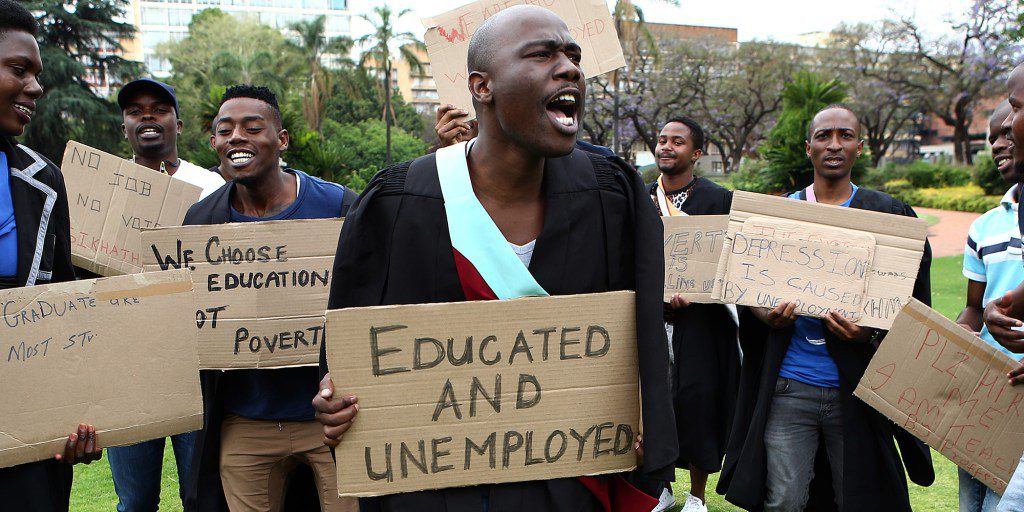
Nigeria’s unemployment rate dropped to 4.3% in Q2 – NBS
Nigeria’s unemployment rate stood at 4.3 per cent in the second quarter of 2024, the National Bureau of Statistics (NBS) has said in its latest report.
The report released on Monday said the unemployment rate decreased compared to the 5.3 per cent recorded in the Q1 of 2024.
The NBS defined the unemployment rate as the share of the labour force (the combination of unemployed and employed people) who are not employed but actively searching and are available for work.
“The unemployment rate for Q2 2024 was 4.3%, showing an increase of 0.1 percentage point compared to the same period last year,” the report stated.
“The unemployment rate among males was 3.4% and 5.1% among females.
“By place of residence, the unemployment rate was 5.2% in urban areas and 2.8% in rural areas. Youth unemployment rate was 6.5% in Q2 2024, showing a decrease from 8.4% in Q1 2024.”
Report also said the unemployment rate among persons with post-secondary education was 4.8 per cent; 8.5 per cent among those with upper secondary education, 5.8 per cent for those with lower secondary education, and 2.8 per cent among those with primary education in Q2 2024.
Employment rate – 76%
The report showed that the employment-to-population ratio, which measures the number of employed workers against the total working-age population, increased to 76.1 per cent in Q2 2024.
“In Q2 2024, 76.1% of Nigeria’s working-age population was employed, up from 73.1% in Q1 2024,” the report stated.
Self-employment – 85.6%
The report further showed that Nigeria’s labour market saw a notable shift as the proportion of self-employed individuals increased in Q2 2024.
It stated, “The proportion of persons in self-employment in Q2 2024 was 85.6%.”
-

 metro20 hours ago
metro20 hours agoBREAKING: Port Harcourt refinery begins operation
-

 Business3 days ago
Business3 days agoJust in: Dangote refinery reduces petrol price for marketers
-

 metro2 days ago
metro2 days ago40-foot container falls on car in Lagos
-
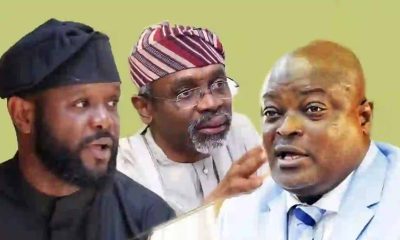
 Politics3 days ago
Politics3 days ago2027: Lagos Speaker, Obasa joins gov race, may battle Seyi Tinubu, others
-

 Politics2 days ago
Politics2 days agoLagos 2027: Seyi Tinubu campaign team releases his life documentary
-

 International2 days ago
International2 days agoTrump to sack 15,000 transgender officers from U.S. military: Report
-

 Entertainment2 days ago
Entertainment2 days agoPolygamy best form of marriage for Africa – Okey Bakassi
-

 Education12 hours ago
Education12 hours agoUS University opens 2025 scholarships for international students

